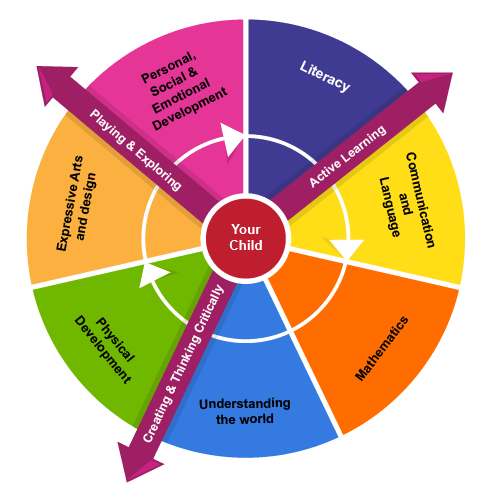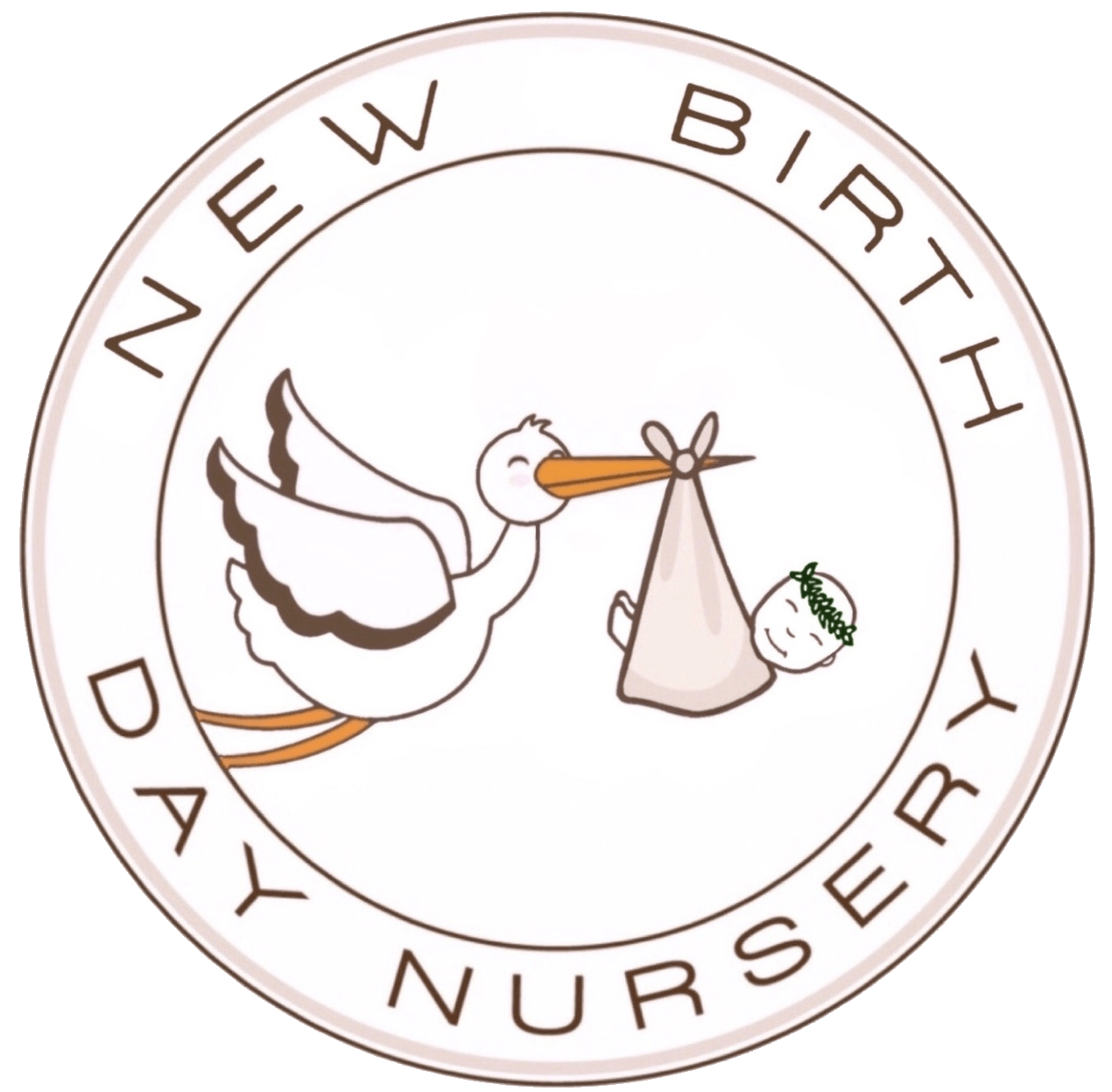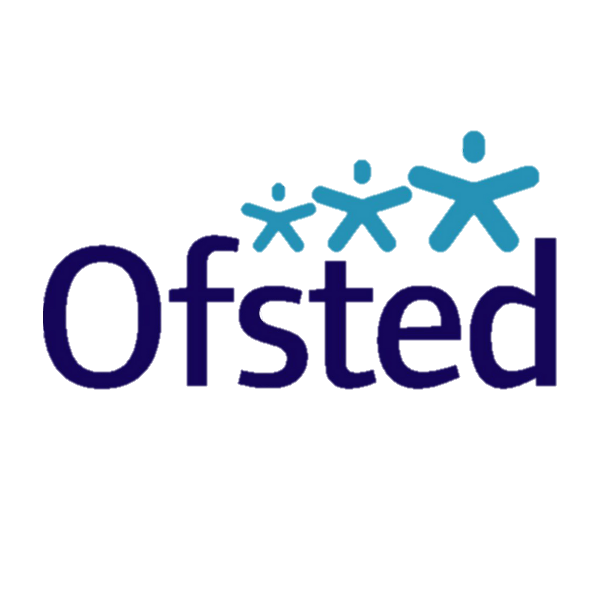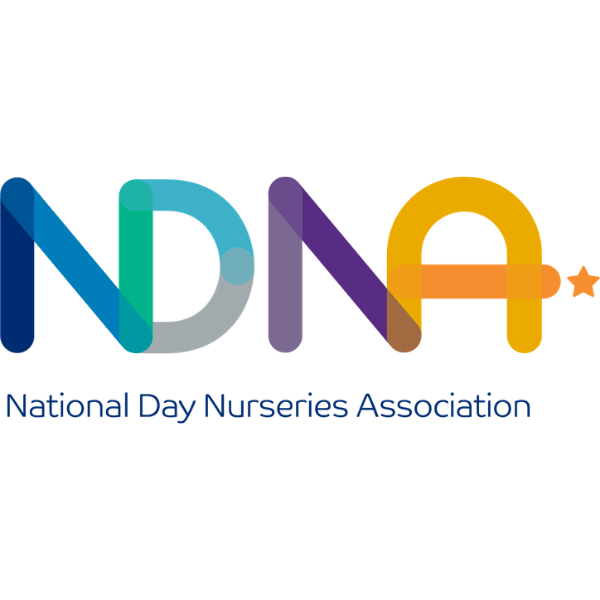EYFS: Seven Areas of Learning
The curriculum is planned to promote progress in all areas of learning, as prime and specific areas of learning development are all interconnected. All areas of learning are delivered through planned, purposeful play, with both, child initiated and adult-led activities.
The EYFS covers 3 Prime Areas of learning and 4 Specific Areas, these are broken down below.

The prime areas:
Are fundamental and develop quickly in response to relationships and experiences and therefore support all other areas. These areas are:
Communication and language (C&L)
Involve providing opportunities to experience a rich language environment; to develop their confidence and skills in expressing themselves; and to speak and listen in a range of situations.
Physical development (PD)
Involves providing opportunities for young children to be active and interactive; and to develop their co-ordination, control, and movement. Children must also be helped to understand the importance of physical activity, and to make healthy choices in relation to food.
Personal, Social and Emotional Development (PSED)
Involves helping children to develop a positive sense of themselves, and others; to form positive relationships and develop respect for others; to develop social skills and learn how to manage their feelings; to understand appropriate behaviour in groups; and to have confidence in their own abilities.
Specific areas:
The Early Years Framework also talks about Specific Areas of learning which include essential skills and knowledge. They develop from the prime areas and provide important context for learning. These are:
Literacy (L)
Involves encouraging children to link sounds and letters and to begin to read and write. Children must be given access to a wide range of reading materials (books, poems, and other written materials) to ignite their interest.
Mathematics (M)
Involves providing children with opportunities to develop and improve their skills in counting, understanding and using numbers, calculating simple addition and subtraction problems; and to describe shapes, spaces, and measures.
Understanding the World (UW)
Involves guiding children to make sense of their physical world and their community through opportunities to explore, observe and find out about people, places, technology and the environment.
Expressive Arts and Design (EAD)
Involves enabling children to explore and play with a wide range of media and materials, as well as providing opportunities and encouragement for sharing their thoughts, ideas and feelings through a variety of activities in art, music, movement, dance, role-play, and design and technology.




